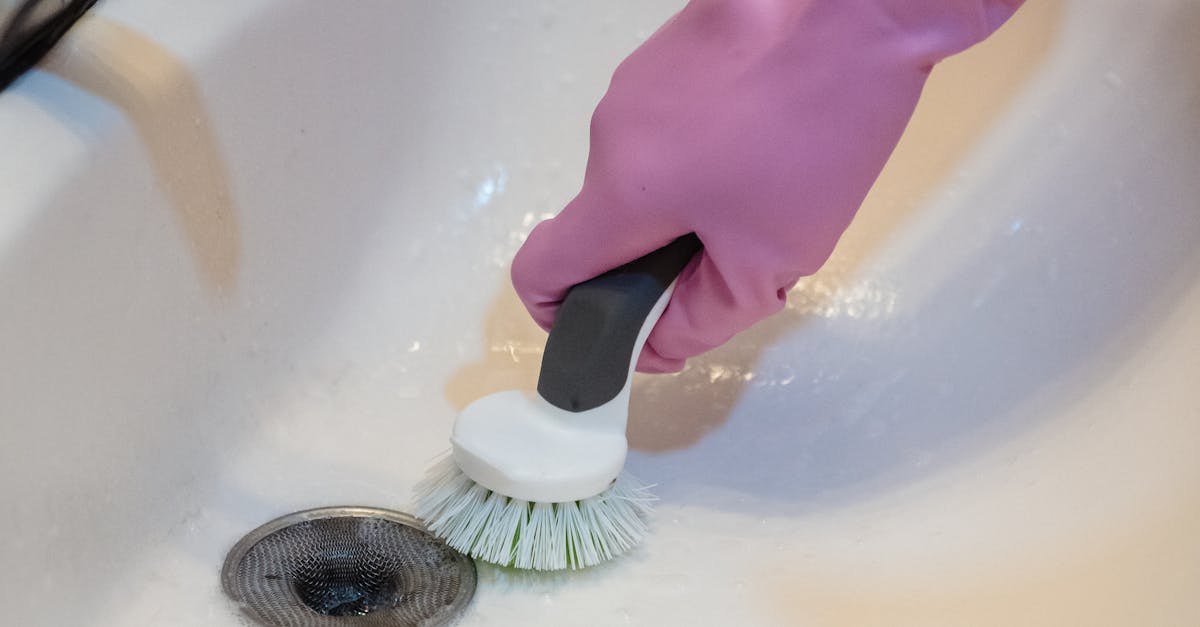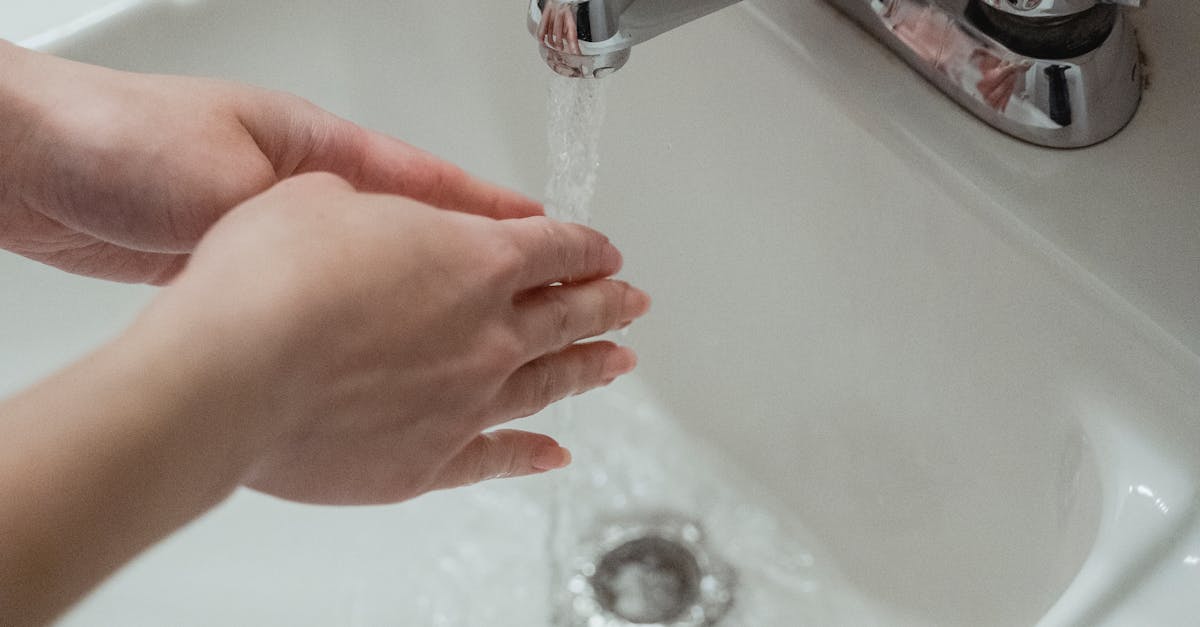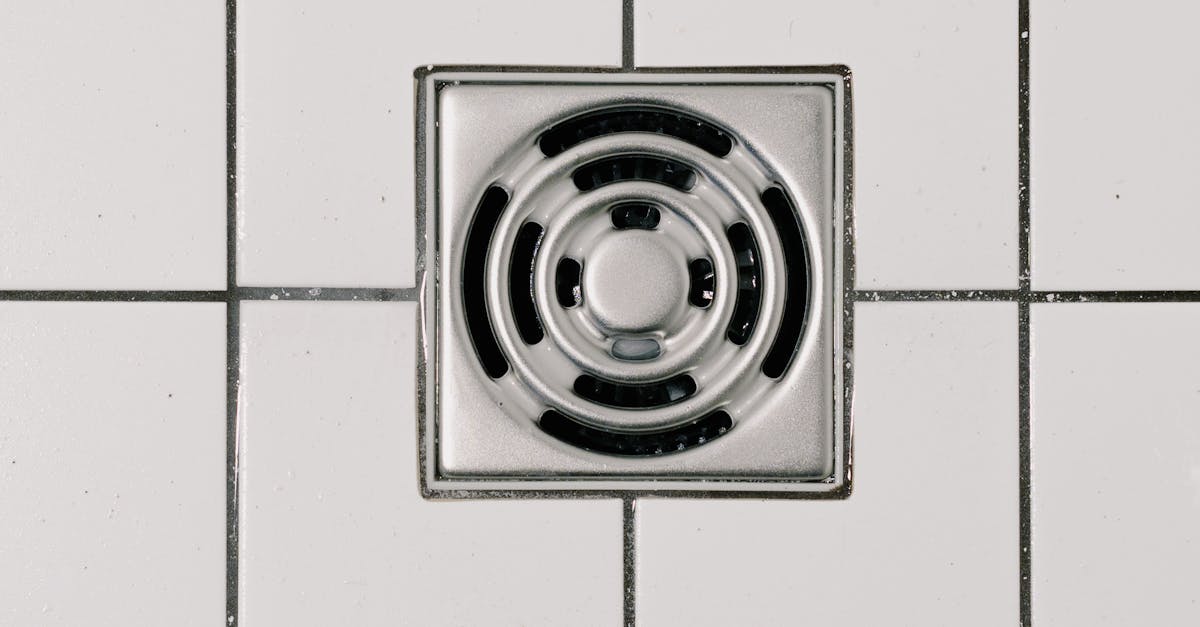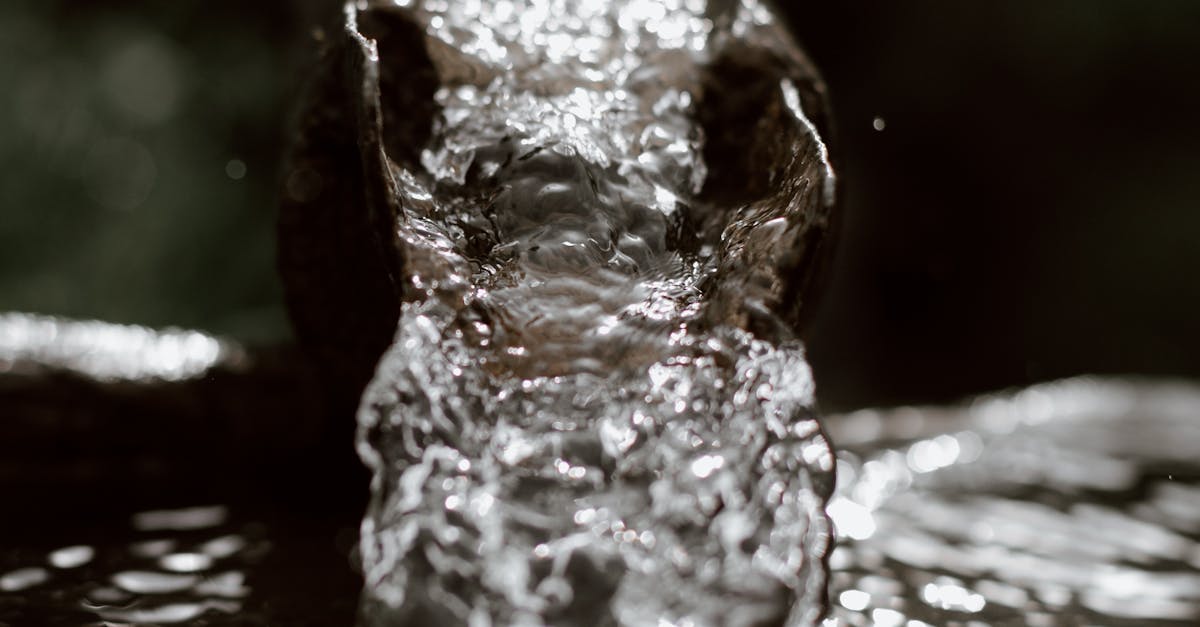
Table Of Contents
EcoFriendly Options for Drain Cleaning
When it comes to drain cleaning, opting for eco-friendly solutions is both beneficial for your home and the environment. Citrus enzyme cleaners are a great DIY option that can help break down organic material clogging your drains. By mixing citrus peels, brown sugar, and water in a jar, you can create a natural and effective cleaner that is safe to use regularly without the harsh chemicals found in many commercial products. This homemade solution not only keeps your drains clear but also releases a pleasant citrus scent throughout your home.
Another eco-friendly approach to drain cleaning involves using a mixture of white vinegar and baking soda. This natural combination creates a fizzy reaction that can help dislodge debris and odours in your pipes. Simply pour the baking soda down the drain followed by the white vinegar, and wait for the bubbling to subside before flushing the drain with hot water. This simple yet effective method can be used as a regular maintenance routine to keep your drains fresh and clear.
Citrus Enzyme Cleaner Recipe
Making your own citrus enzyme cleaner for drain cleaning is a simple and eco-friendly alternative to harsh chemicals. To prepare this natural solution, combine citrus peels, brown sugar, and water in a clean container. Allow the mixture to ferment for several weeks, stirring occasionally. Once the fermentation process is complete, strain the liquid and dilute it with water before using it to clean drains. This citrus enzyme cleaner not only helps in removing blockages, but it also leaves a pleasant scent behind.
Citrus enzyme cleaner is an effective way to tackle grease and grime buildup in drains. Its natural enzymes break down organic matter, keeping pipes clean and odour-free. Regular use of this homemade solution can prevent clogs and maintain the smooth flow of water, making it a cost-effective and environmentally friendly option for drain cleaning.
Specialized Tools for Deep Drain Cleaning
Specialized tools are essential for effective deep drain cleaning. Drain snakes, also known as augers, are commonly used to access deep clogs in pipes. These flexible tools can navigate through bends and traps in the plumbing system to dislodge blockages. Drain snakes come in various sizes and designs to suit different pipe diameters and types of clogs.
Another tool for deep drain cleaning is a hydro-jet. This equipment uses high-pressure water to flush out stubborn debris and buildup in pipes. Hydro-jetting is a powerful method that can effectively clear out grease, mineral deposits, and other blockages that may be impeding the flow of water. When used correctly, these specialized tools can efficiently tackle even the toughest drain cleaning tasks.
Drain Snake Usage Tips
When using a drain snake for cleaning purposes, it is crucial to wear gloves to protect your hands from any debris or bacteria within the drain. Begin by inserting the drain snake into the drain opening, ensuring it goes in smoothly and encounters no obstructions. Slowly turn the handle clockwise as you gently push the snake further into the drain until you feel some resistance. Then, rotate the snake in a back and forth motion to break up any clogs or blockages. Continue this process until you no longer feel any resistance and the snake moves freely within the drain.
After successfully breaking up the blockage in the drain, slowly retract the snake while continuing to rotate the handle. Once the drain snake is completely removed, run hot water down the drain to flush out any remaining debris. Remember to clean the drain snake thoroughly after each use to prevent the spread of bacteria and maintain its effectiveness for future drain cleaning tasks. By utilising the drain snake correctly and following these guidelines, you can efficiently tackle clogs and keep your drains clear and functional.
Common Mistakes to Avoid When Cleaning Drains
When it comes to drain cleaning, there are certain mistakes that should be avoided to ensure an efficient and safe process. One common mistake is the overuse of harsh chemicals. While it may seem like a quick fix to pour a bottle of strong chemical cleaner down the drain, these substances can actually cause more harm than good in the long run. The chemicals can erode the pipes, leading to leaks and other costly damage over time. It's important to be mindful of the products used in drain cleaning and opt for more gentle alternatives where possible.
Another mistake to steer clear of when tackling drain cleaning is neglecting regular maintenance. Waiting until a clog occurs before addressing the issue can result in a more challenging and time-consuming cleanup process. By incorporating routine maintenance into your household chores, such as flushing drains with hot water or using natural cleaning solutions, you can help prevent major blockages and keep your plumbing system running smoothly. Proper care and attention to your drains can go a long way in maintaining a healthy and functional plumbing system.
Overuse of Harsh Chemicals
Overuse of harsh chemicals in drain cleaning can often do more harm than good. While these strong chemicals may initially seem like a quick fix for unclogging drains, they can have damaging consequences in the long run. The continuous use of these chemicals can deteriorate the pipes and plumbing system, leading to costly repairs and replacements. It is important to be mindful of the products used for drain cleaning to prevent such issues from arising.
In addition to harming the pipes, the overuse of harsh chemicals can also have adverse effects on the environment. These chemicals contain various toxic substances that can seep into the soil and waterways, causing pollution and harm to aquatic life. Choosing more eco-friendly alternatives for drain cleaning can help reduce the negative impact on the environment while still effectively clearing clogged drains.
FAQS
Can I use baking soda and vinegar to clean my drains?
Yes, baking soda and vinegar can be an effective and eco-friendly option for cleaning drains. Simply pour half a cup of baking soda down the drain, followed by half a cup of vinegar. Let it sit for a few hours, then flush with hot water.
Are there any homemade drain cleaners that are safe for the environment?
Yes, you can create a citrus enzyme cleaner using citrus peels, sugar, and water. This natural cleaner is not only safe for the environment but also helps break down grease and grime in your drains.
Is it safe to use a drain snake for deep cleaning clogs?
Drain snakes are specialized tools designed to effectively remove tough clogs in drains. However, it is important to use them carefully to avoid damaging your pipes.
What are some common mistakes to avoid when cleaning drains?
One common mistake to avoid is overusing harsh chemicals, as they can damage your pipes and harm the environment. It is also important to properly dispose of any chemical cleaners to prevent pollution.
Can I prevent clogs in my drains by using a hair catcher?
Yes, using a hair catcher in your shower or sink drains can help prevent clogs caused by hair buildup. Simply clean the hair catcher regularly to ensure it remains effective in keeping your drains clear.


